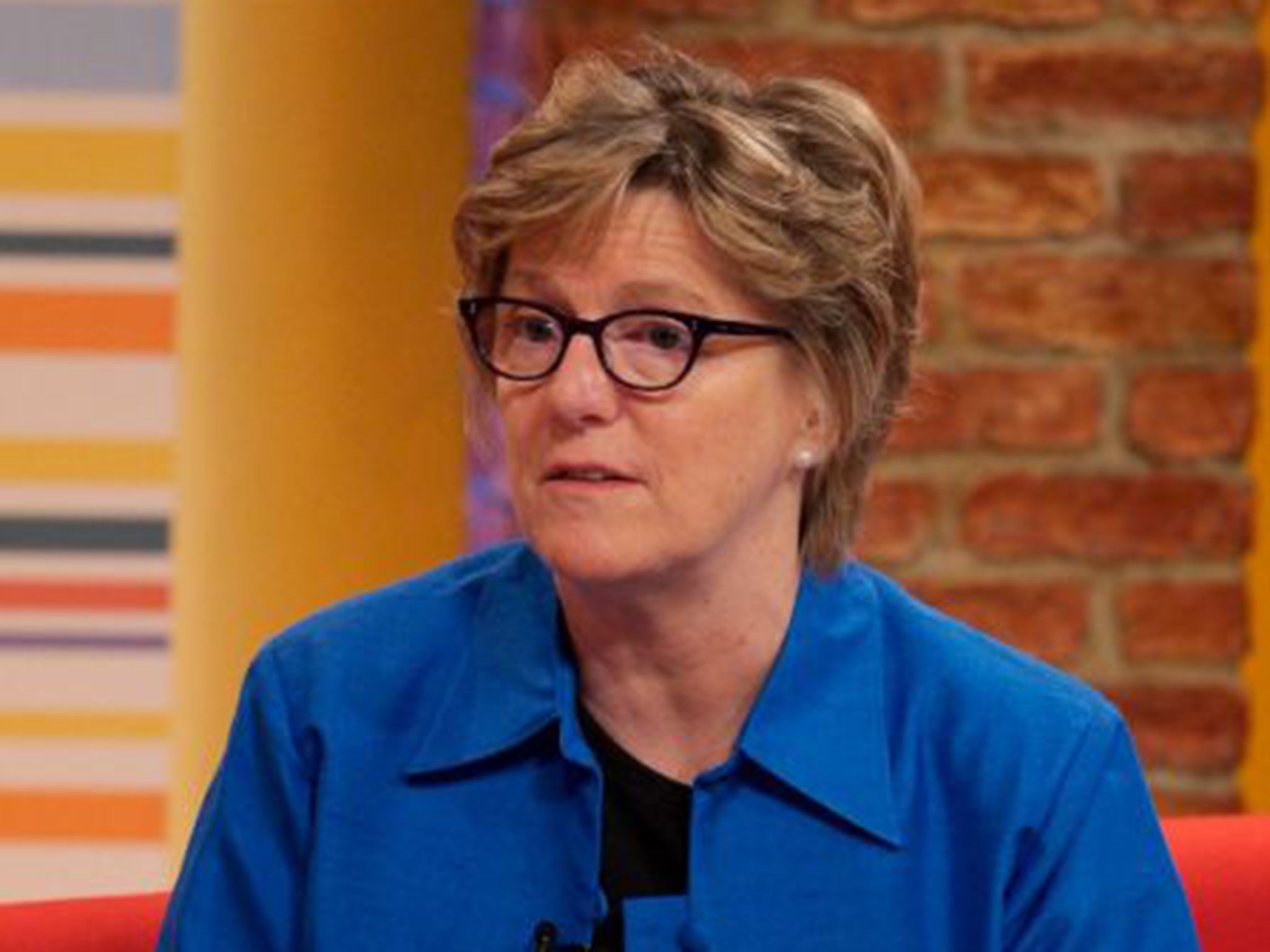Dismiss it as the 'nanny state' all you want, but obesity really is a national emergency - especially for women
Tackling the subject is difficult enough without the media’s absurd claims that belittle the seriousness of the health risk

Obesity is as dangerous as terrorism: it’s an extraordinary claim, as a number of news reports rushed to point out. Did the country’s chief medical officer, Dame Sally Davies, really say it? The answer is that she didn’t, not in so many words, but anyone who skimmed last week’s headlines would be left with the impression that the Government’s leading health adviser had said something really quite preposterous.
Despite the use of quotation marks, the comparison was actually an inference, drawn from a 162-page analysis of risks to women’s health. In her introduction, Davies suggested that obesity should be added to a register of national risks that includes severe weather, coastal flooding, flu pandemics and various kinds of terrorist attacks. So the headlines could have said that obesity poses as much risk to human health as floods or animal diseases, which are also on the list. But that would be nowhere as attention-grabbing – or as easy to ridicule.
This is how the anti-science lobby works. It dismisses any attempt to help people understand their bodies and reduce damage to their health – by giving up smoking, say – as interference by the “nanny state”. It’s tragically effective, as evidenced by the very long time it took to persuade people to give up a habit that was killing half of them (too late for my parents, who started smoking as teenagers and both died of lung cancer).
Any day now I expect to read a blog arguing that being obese is the “new normal” and we shouldn’t worry about it. And I wasn’t surprised to see Davies’s “extraordinary claim” about obesity and terrorism, which she didn’t actually make as far as I can see, denounced as hyperbole. One hostile writer even went off into a fantasy in which Davies’s defenders “might argue that obesity has killed more people than Islamic State”, adding helpfully that “beheadings and bombings exist in a different moral universe to high blood pressure and diabetes”.
I was reminded of a headline that appeared in Newsweek a few years ago, predicting that a 40-year-old single woman was more likely to be killed by a terrorist than to get married. Twenty years later (yes, it took that long), the magazine published a retraction, acknowledging that the terrorist line didn’t appear in the academic study that prompted the headline. I’m not sure what lies behind this impulse to drag belittling references to terrorism into stories about women’s lives but it certainly doesn’t encourage serious discussion. Perhaps there’s now an unwritten rule that every story has to mention the Paris attacks in some way, but the inaccurate Newsweek headline went on being repeated in the media for years. I fear that the obesity-terrorism link will do something similar.

Anyway, while much of the reaction to Davies’s report was predictable, that doesn’t excuse it. The same people who complain about political correctness and its even more evil cousin, “political correctness gone mad”, react with outrage whenever someone points out the obvious fact that obesity is destroying individual health, shortening lives and putting a huge strain on the NHS. In particular, it is having specific effects on women of child-bearing age and future generations.
These are not marginal concerns at a time when just over half of women in the 25 to 34 age group are overweight or obese. The statistics for men are even worse but two factors, pregnancy and longevity (women live longer and thus spend more time suffering from the debilitating effects of being overweight), explain why this latest reports focuses on the impact on the female half of the population.
Women’s weight is a western obsession and a huge industry is based on it, offering any number of slimming products and wonder diets. It’s remarkable ineffective, judging by the statistics, producing a great deal more in the way of anxiety than weight loss. One of the reasons, I suspect, is that women are encouraged to obsess about looking slim rather than the health benefits of losing weight. That’s the shift Davies is trying to make and she knows perfectly well that her report is going into territory that’s troublesome for many women. “This is a difficult message to convey,” she says, “as it risks burdening women with guilt and onerous responsibility.”
What women need to know is that obesity makes it harder to get pregnant and raises the risk of miscarriage, while early embryos of obese mothers show an increased incidence of developmental abnormalities. Obesity even affects the eggs of the foetus, so that a woman’s health during pregnancy has an impact on her children and grandchildren. How many young women are aware of that?
One day last week I got on to a Tube train at the same time as a group of women in their twenties. One of them was wearing a security pass, which is how I know she is a care assistant. She talked about her job enthusiastically to her friends but the most striking thing about her was her weight; this young woman, who had chosen a difficult and poorly paid occupation looking after vulnerable people, was massively obese. I couldn’t imagine how she managed to cope with the physical demands of her job without getting out of breath and putting a strain on her heart.
It’s little short of tragic to see even quite young women struggling to live with the effects of obesity. The United Nations has called the UK the “fat man of Europe” but it’s high time the Government looked closely at the health of the other 51 per cent of the population.
Join our commenting forum
Join thought-provoking conversations, follow other Independent readers and see their replies
Comments